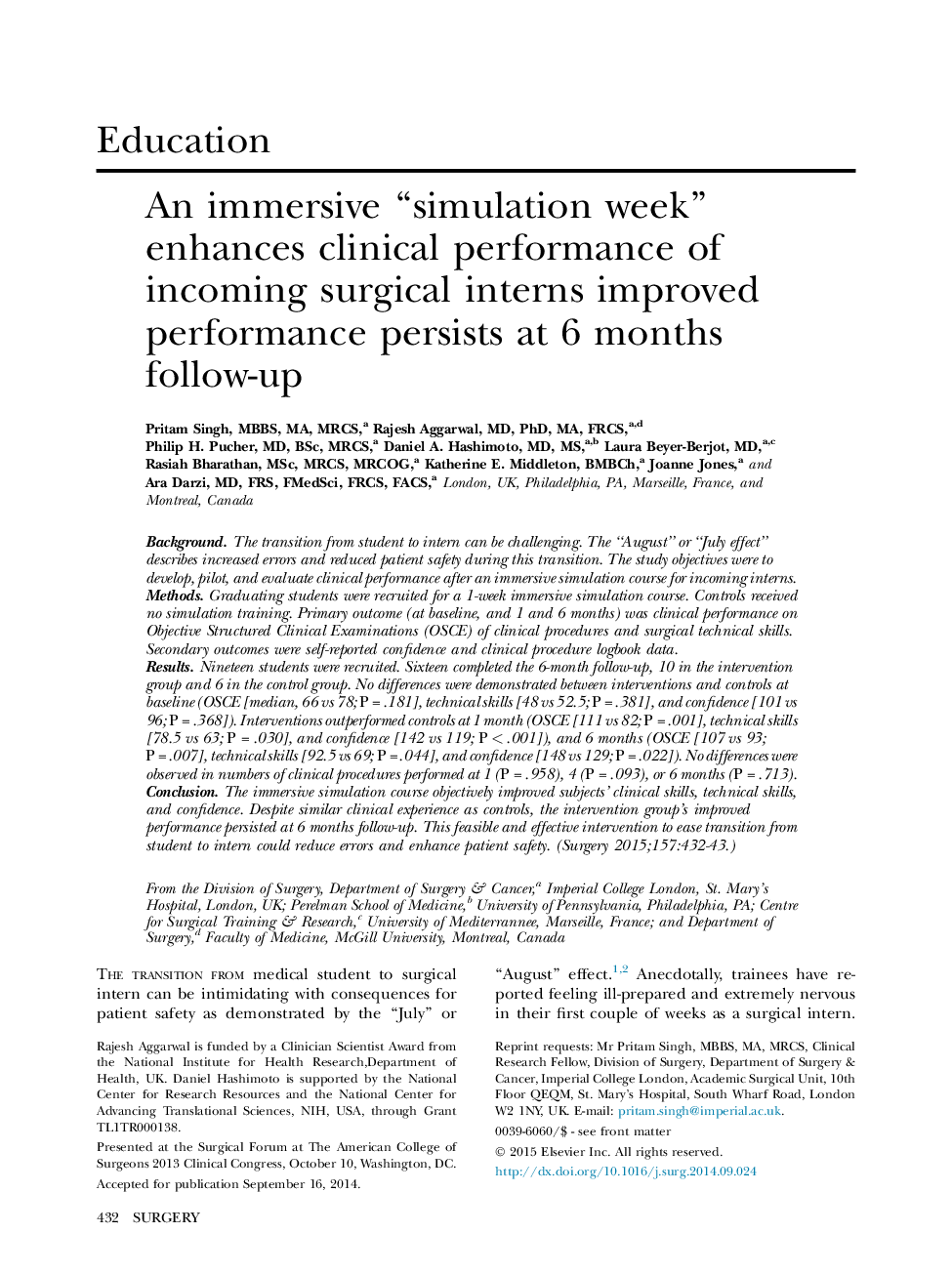| Article ID | Journal | Published Year | Pages | File Type |
|---|---|---|---|---|
| 6255383 | Surgery | 2015 | 12 Pages |
BackgroundThe transition from student to intern can be challenging. The “August” or “July effect” describes increased errors and reduced patient safety during this transition. The study objectives were to develop, pilot, and evaluate clinical performance after an immersive simulation course for incoming interns.MethodsGraduating students were recruited for a 1-week immersive simulation course. Controls received no simulation training. Primary outcome (at baseline, and 1 and 6Â months) was clinical performance on Objective Structured Clinical Examinations (OSCE) of clinical procedures and surgical technical skills. Secondary outcomes were self-reported confidence and clinical procedure logbook data.ResultsNineteen students were recruited. Sixteen completed the 6-month follow-up, 10 in the intervention group and 6 in the control group. No differences were demonstrated between interventions and controls at baseline (OSCE [median, 66 vs 78; PÂ =Â .181], technical skills [48 vs 52.5; PÂ =Â .381], and confidence [101 vs 96; PÂ =Â .368]). Interventions outperformed controls at 1Â month (OSCE [111 vs 82; PÂ =Â .001], technical skills [78.5 vs 63; PÂ =Â .030], and confidence [142 vs 119; PÂ <Â .001]), and 6Â months (OSCE [107 vs 93; PÂ =Â .007], technical skills [92.5 vs 69; PÂ =Â .044], and confidence [148 vs 129; PÂ =Â .022]). No differences were observed in numbers of clinical procedures performed at 1 (PÂ =Â .958), 4 (PÂ =Â .093), or 6Â months (PÂ =Â .713).ConclusionThe immersive simulation course objectively improved subjects' clinical skills, technical skills, and confidence. Despite similar clinical experience as controls, the intervention group's improved performance persisted at 6Â months follow-up. This feasible and effective intervention to ease transition from student to intern could reduce errors and enhance patient safety.
